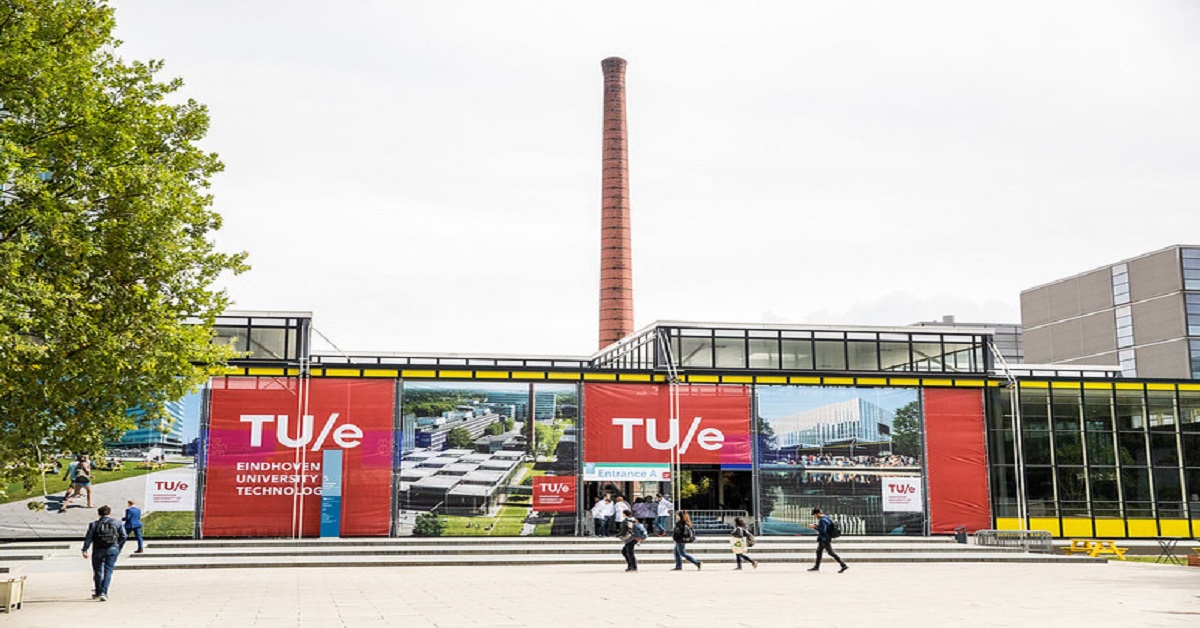Are you fascinated by the idea of transforming optical fiber networks into advanced sensor systems that can precisely detect earthquakes while maintaining seamless Internet connectivity? Join us on this exciting NWO research project with prestigious collaboration partner in Sweden and the Information and communication Theory lab at the TU/e.
Job Description
Around 500,000 earthquakes occur globally each year, with over 1,000 caused by gas exploration in the Groningen region in the Netherlands within the past 40 years. Predicting these earthquakes currently requires installing expensive dedicated sensor networks. This project instead focuses on transforming existing optical fiber networks, currently used only for providing Internet, into powerful distributed sensor networks that can detect and locate earthquakes.
As a post-doc you are asked to lead research in this area, give guidance to students and come up with innovative concepts. The research includes developing novel theoretical simulation models and devising advanced signal-processing algorithms for better detection and localization accuracy. A particular emphasis will be placed on the application of emerging machine learning and data-driven techniques to optimize communication performance and sensing accuracy.
This position is part of the collaborative NWO research project Pinto which aims to develop novel algorithms and approaches for earthquake localization using existing optical fiber networks. The Pinto project foresees close collaboration with Chalmers University of Technology (Sweden) and provides opportunities for research visits to Chalmers. We will collaborate with the Fibre-Optic Communication Research Centre (FORCE) at Chalmers, which brings together a team of approximately 40 researchers in a ground-breaking, collaborative pursuit of innovate solutions for optical communication systems. After a successful 8 months at TU/e, the candidate will have the opportunity to spend 12 additional months at Chalmers University of Technology.
Job requirements
- You are a motivated researcher with a PhD in Electrical Engineering or a related field.
- You are able to conduct independent academic research, as evidenced by your previous publications in relevant high-ranking journals and conference proceedings.
- You have a strong background in signal processing, communication theory and machine learning.
- You have a comprehensive understanding of physical-layer communications and experience with optical channel models.
- You are experienced in modelling communication systems and their performance with Matlab, Python or C++.
- You are a team player who enjoys coaching and teaching students and shaping new research plans.
- You have excellent proficiency in written and verbal English, along with strong communication and leadership skills.
Conditions of employment
A meaningful job in a dynamic and ambitious university, in an interdisciplinary setting and within an international network. You will work on a beautiful, green campus within walking distance of the central train station. In addition, we offer you:
- Full-time employment for 8 months.
- Salary in accordance with the Collective Labour Agreement for Dutch Universities, scale 10 (min. €4,020 max. €5,278).
- A year-end bonus of 8.3% and annual vacation pay of 8%.
- High-quality training programs on general skills, didactics and topics related to research and valorization.
- An excellent technical infrastructure, on-campus children’s day care and sports facilities.
- Partially paid parental leave and an allowance for commuting, working from home and internet costs.
- A TU/e Postdoc Association that helps you to build a stronger and broader academic and personal network, and offers tailored support, training and workshops.
- A Staff Immigration Team is available for international candidates, as are a tax compensation scheme (the 30% facility) and a compensation for moving expenses.
Information and application
About us
Eindhoven University of Technology is an internationally top-ranking university in the Netherlands that combines scientific curiosity with a hands-on attitude. Our spirit of collaboration translates into an open culture and a top-five position in collaborating with advanced industries. Fundamental knowledge enables us to design solutions for the highly complex problems of today and tomorrow.
The Information and Communication Theory Lab (ICT Lab) at TU/e is a globally recognized research group focusing on information and communication theory, and its applications. At the ICT Lab, we study information processing in a broad sense. We focus on finding fundamental limits but also on the data processing techniques (often codes and digital signal processing algorithms) and architectures that aim at approaching these limits. Main areas of interest are source coding, channel coding, multi-user information theory, security, and machine learning. We typically use information-theoretical frameworks to model the scenarios under investigation. This allows us to find out what the optimal trade-offs are. The scenarios that we study often result from close interaction with industry.
Curious to hear more about research at the ICT Lab? Please view this video.
Information
Do you recognize yourself in this profile and would you like to know more?
Please contact the hiring managers Prof. Alex Alvarado, Full Professor, at a.alvarado@tue.nl or dr. Hamdi Joudeh, Associate Professor h.joudeh@tue.nl.
Visit our website for more information about the application process or the conditions of employment.
For More information about the research groups in this project please visit
https://www.tue.nl/en/research/research-groups/signal-processing-systems/
https://www.tue.nl/en/research/research-groups/signal-processing-systems/ict-lab
For any other informal inquiries, please contact the secretary of the ICT Lab, Mrs. Emeral Clump-Busser at ictlab@tue.nl.
Are you inspired and would like to know more about working at TU/e? Please visit our career page.
Application
We invite you to submit a complete application by using the apply button.
The application should include:
- A cover letter in which you describe your motivation and qualifications for the position.
- A curriculum vitae, including a list of your publications and the contact information of three references.
- Copies of up to five self-selected ‘best and appropriate publications’.
- A copy of the candidate’s PhD Thesis
We look forward to receiving your application and will screen it as soon as possible. The vacancy will remain open until the position is filled.
